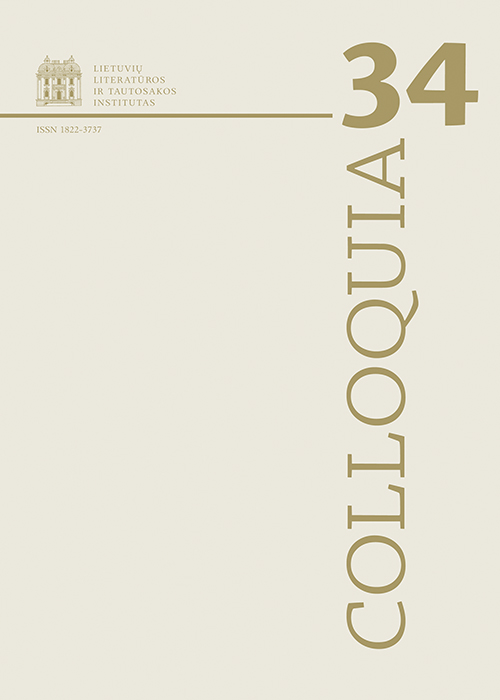Who’se on Top? Distributions of Power Relations in Lithuanian Children’s Fiction of the 1940s–1950s
Abstract
Up to the Second World War, representations of family relations in Lithuanian children’s literature follow a strict authoritarian model: parents (especially fathers) hold the reigns of power, and children are usually shown as obedient and mindful of parental advice. On the other hand, early Soviet-era texts show a sudden surge in family conflicts: sons argue with fathers, grandchildren lecture grandmothers, brother and sisters bicker. This interpretative shift calls for an examination of the representations of power dynamics offered to readers of that era. This article examines 1940s to 1950s prose in order to understand who in the family seeks to and succeeds in influencing other members; the sources of tensions; and the different kinds of arguments deployed. The author reveals how Soviet ideology and socialist realist aesthetics dismantled an earlier image of the family: disagreements are often depicted in political terms, devotion to the family is belittled in favor of responsibilities towards collective labour, and inter-generational hierarchies are reordered. Parental authority was especially damaged: there is an increase in situations in which parents’ dominion in the family is negated or their decisions challenged, their authority superseded by extra-familial worldviews and behaviors – ideologically progressive contemporaries or other adults. This change in paradigm was especially damaging to the image of the mother – she is often represented as a narrow-minded woman who is frustrated in her attempts to control her children and who ultimately becomes powerless, reserved, and focused on housework. The time period chosen for this analysis makes it possible to identify the appearance, peak, and ebb of this interpretation of family relations – in 1950s works the struggle for power begins to subside and parents regain their authority within the family.
Downloads
Most read articles in this journal
- Loreta Jakonytė, Literary and Commercial Texts – Together, Alongside, Separately , Colloquia: Vol. 35 (2015)




